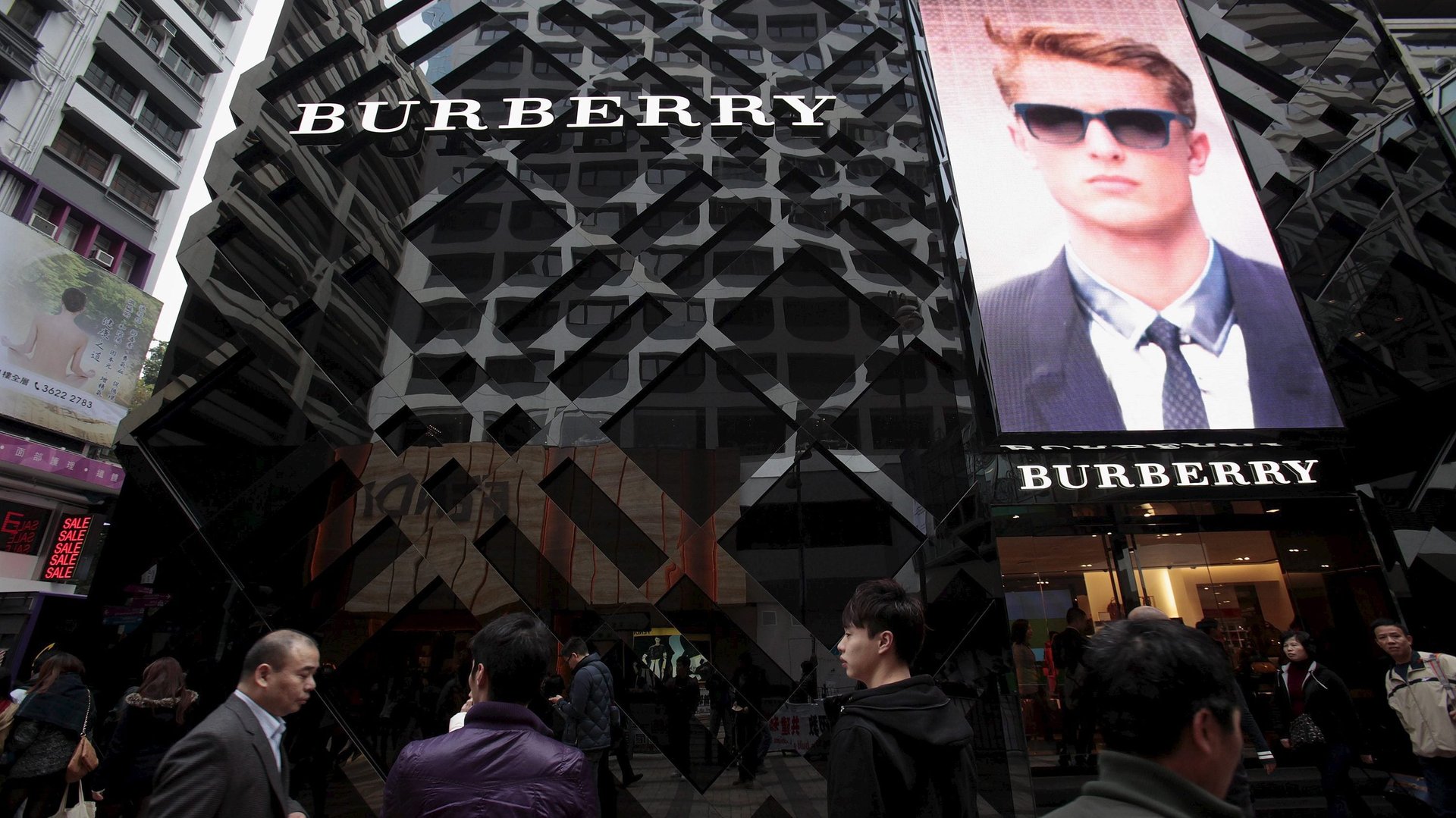Hong Kong protests could hit Burberry sales by up to £100 million
Demanding free elections and an investigation into police misconduct, Hong Kong’s protesters are concerned about much greater issues than shopping. But as demonstrations and clashes with police continue, the escalating turmoil has hit tourism and retail spending hard, hurting global brands that have come to rely on the financial hub as one of the world’s luxury shopping destinations.


Demanding free elections and an investigation into police misconduct, Hong Kong’s protesters are concerned about much greater issues than shopping. But as demonstrations and clashes with police continue, the escalating turmoil has hit tourism and retail spending hard, hurting global brands that have come to rely on the financial hub as one of the world’s luxury shopping destinations.
One example: Burberry. According to financial services firm Jefferies, the brand’s Hong Kong sales are likely to plunge by £100 million ($122.2 million) this year. While it’s expected to recapture half those sales in other geographies, that still leaves a net loss of £50 million.
Burberry happens to be particularly vulnerable to troubles in Hong Kong, according to the firm, which offered its forecast in an Oct. 8 research note to clients. It estimates that the British luxury label gets 8% of its total sales from its 10 stores in the city, and much of its stock is seasonal clothing. If it doesn’t sell quickly—and it seems unlikely to—it will have to be discounted or relocated. “The simple solution is don’t deliver stuff to Hong Kong anymore, there’s no point,” Flavio Cereda, an analyst at Jefferies and one of the note’s authors, told the Telegraph. “Or if you’re going to deliver 500 jackets, then deliver 50 instead and ship the rest of them off to mainland China.”
A spokesperson for Burberry said it is currently in a closed period as it prepares to report earnings and is unable to provide any updates on its sales in Hong Kong.
Burberry isn’t the only vulnerable brand. Investment firm UBS has estimated that Richemont gets about 11% of its sales from Hong Kong, and Swatch about 10%. (Its estimate for Burberry was about 9%.) Hermès, Moncler, Prada, and others also count on the city for a significant piece of their sales. Analysts at Bernstein, meanwhile, attribute between 5% and 10% of the luxury market’s $285 billion in total sales to Hong Kong.
Because the protests only began a few months ago, they haven’t shown up fully in company financial results yet. That’s going to change soon. Reuters reported last week that Rogerio Fujimori, an analyst at RBC, believes many brands will see sales fall between 30% and 60% in the third quarter.
Luxury spending in the city was under pressure long before the protests started. Much of it has typically come from mainland Chinese taking shopping trips to Hong Kong. In recent years, those trips have shifted toward cities such as Seoul and Tokyo. More Chinese shoppers have also been making their luxury purchases on the mainland, as efforts by the country’s government to get people shopping more at home than abroad have taken hold.
But the protests have hammered luxury spending as shopping malls have become battlegrounds and stores in affected areas have been forced to stay closed. The downturn will likely continue even if the protests eventually cease.
“We continue to believe the current unrest will result in a permanent contraction in the role of [Hong Kong] as a Luxury hub,” Jefferies analysts wrote in a separate note on Oct. 1. It cited more hostility toward visitors from the mainland, the shrinking price differential on luxury goods between Hong Kong and cities such as Shanghai, and other issues such as stricter border controls. It predicted spending in Hong Kong through October could be down as much as 80%, depending on location, and added, “we do not see scope for a full recovery given dynamics.”